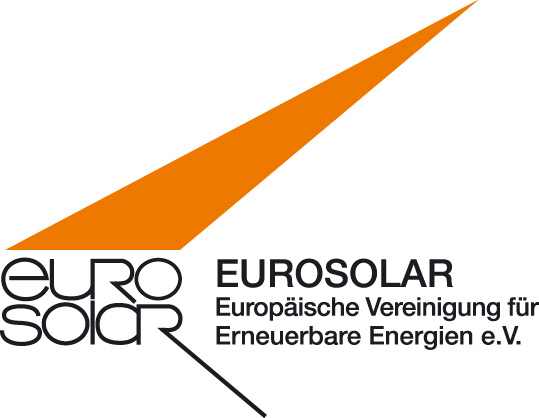The economically politically enormously successful EEG is to be effectively abolished with the harmless sound system of the tenders:
1. By covering the expansion of renewable energies:
The Federal Government wants to limit the expansion of renewables for the first time in history. With this cap, the new extension is to be reduced to a level that is not enough to reach the completely unambitious goal of the federal government (80% RE by 2050 only for electricity, without heat and traffic). Top covers on much too small development capacity secure the fossil energy system and the old oligopoly behind it with a permanent stock guarantee. Depending on the political majority, legislators can even push down the top covers as they wish.
2. By the abolition of fixed remuneration per kWh delivered to the network:
The Federal Government intends to abolish the annual declining fixed remuneration by the EEG and to determine the remuneration in bureaucratic tender procedures. This curtails the freedom for energy-switching investments by the key players of the energy sector: small, medium-sized and municipal companies. These decentralized energy investors will disappear with the introduction of tenders from the market because they cannot shoulder the associated risk of investment. This does not change the hat-tricked special rules for citizens ‚energies, which block the middle class and force citizens‘ energy into tenders. Any type of tendering for remuneration – whether with or without a plant permit – makes the project development for wind power a lottery. The energy turnaround is thus becoming a game of energy conglomerates and large investors.
We therefore call upon the Federal Government and all parties represented in the Bundestag, as well as the federal councilors in the Federal Council, to consistently push ahead with the energy exchange of nuclear, coal and oil into renewable energies through a new energy market order (NEMO) and resolutely oppose the plans for the stopping of the energy transition.
Preservation and restoration of the EEG:
Fixed and foreseeable rates of remuneration per kWh delivered, the feed-in priority and minimum targets for the expansion are necessary. Any type of capping as well as the burden on the renewable self-consumption of the now inexpensive renewable energies must be abolished.
No tenders for wind energy, biogas, hydropower and solar power plants:
Even the coalition agreement of the Grand Coalition calls for tenders at the earliest after the next federal election, and only if they are subject to rigorous scrutiny. In the case of the introduction of tenders for wind energy, the scope for exemptions for small wind parks with six wind energy installations, which is provided by the EU Commission, must be used without restriction, as the Federal Council also calls for in its resolution of December 2015 (so-called De Minimis-Regulation). All these special rules, which remain behind De-Minimis and force middle-class as well as citizenship in tenders under the cover, strangle the energies and damage the actor’s diversity.
For a real energy turnaround with 100% renewable energies for electricity, heat and fuels:
The annual addition of wind and solar energy should be at least five gigawatts (GW) each year and be supplemented by the further expansion of bioenergy, hydropower, solar thermal energy and geothermal energy. In addition to the EEG, the Renewable Energies Heat Act (EEWärmeG) must also be strengthened for the heat transition in the building stock and a renewable mobility turnaround must be implemented.
The planned electricity market law:
Renewable energies must be at the center of the electricity market. This requires the creation of a flexible market with biogas and cogeneration as well as the elimination of the barriers between the markets for electricity, heat and fuels (convergence of the energy markets through EE Power-to-Heat, EE Power-to-Gas and EE Power-to-Wheel). Unlike the federal government, coal-fired power plants are not „a partner for renewable energy“.
Creating a regulatory framework for energy storage:
Distribution companies, EEG plant operators and sales companies must be allowed to invest in energy storage. On the other hand, the expensive grid expansion laws have to be abolished for proven redundant north-south direct current (HVDC) lines as well as the expensive coal supply, which has no effect on energy supply security and innovation.
Creation of a real market for renewable energies:
It is necessary to introduce the green electricity market model and the tenant direct marketing without burdening the EEG levy, instead of compelling the marketing of the renewable electricity at dumping prices at the electricity exchange with the obligation of direct marketing.
Introduction of a pollutant tax for the gradual coal extraction:
The fossil energy production from brown and hard coal produces enormous social costs, in particular because of the high pollutant load of the existential goods air and water. These costs are not carried by the energy companies, but are a burden on the taxpayer. This is a massive coal subsidy, which leads to a distortion of competition at the expense of renewable energies and hinders energy generation. This is why a pollutant tax has to be introduced in order to initiate the coal exit market. We reject negotiations on energy concessions for a coal consignment. The so-called „Atomkonsens“ (2000) was never recognized by the corporations and failed in 2010. Without the core melt accident of Fukushima, there would be no nuclear phase-out (2011). Instead of negotiating with energy groups, the affected regions (Lausitz and Niederrhein) should be supported by a state fund for a socially acceptable structural change.
The energy market is in danger, 2016 is the year of the decision: if our demands for a new energy market regulation (NEMO) are not considered, the renewables are pushed into the niche by the „EEG 2016“ and the electricity market law.
